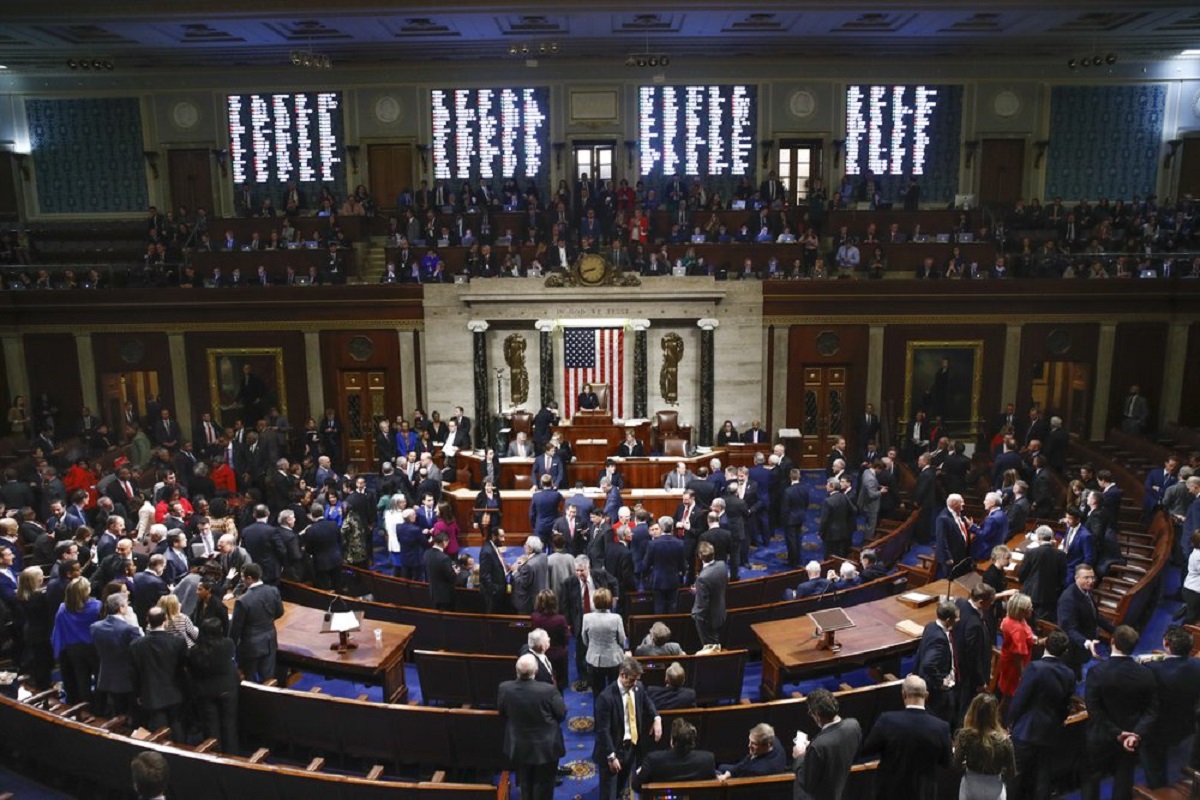Donald Trump has become the third US President in history to be impeached by the Democrat-controlled US House of Representatives, setting up a trial in the Republican-controlled Senate that will decide whether he remains in office. On Wednesday night, the House voted on two articles of impeachment - first, accusing the President of abuse of power, second, obstruction of Congress. The first article was approved by a vote of 230-197, while the second received 229 to 198 votes.
Trump has been accused of withholding nearly $400 million in congressionally approved military aid to pressure Ukraine's new President Volodymyr Zelensky into launching an inquiry into his 2020 Democratic rival Joe Biden and his son, Hunter. But Trump has denied all the allegations against him.
Here is a timeline of events that led to Wednesday's voting:
July 25: Trump calls Zelensky on the phone, a call which has become the central part of the impeachment inquiry. In a rough transcript released by the White House, Trump asks Zelensky to "look into" Joe Biden and his son Hunter, who was a board member of a Ukrainian gas company. Trump asks about "investigations" into the Bidens, in the call overheard by a member of staff of Bill Taylor, the acting US Ambassador to Ukraine.
August 12: A Central Intelligence Agency (CIA) officer who learns of the call files a whistleblower complaint with the intelligence community watchdog, the inspector general
September 10: The Democrat-controlled House of Representatives asks for information on the whistleblower complaint. The next, US military aid to Ukraine restarts.
September 24: House Speaker Nancy Pelosi opens impeachment inquiry against Trump, following which the White House releases a rough transcript of the July phone call the next day. Two days after the launch of the impeachment inquiry, a whistleblower complaint is released which alleges that Trump used "the power of his office to solicit interference from a foreign country" in next year's presidential election.
October 17: White House Chief of Staff Mick Mulvaney admits military aid to Ukraine was withheld partly to pressure Kiev to investigate allegations involving the Democrats and the 2016 election. but he later backtracks.
October 22: Bill Taylor, the Acting Ambassador to Ukraine, tells congressional investigators THAT there was a link between military aid and investigation of Bidens.
October 31: The House of Representatives approves a resolution making impeachment process formal and promises public hearings
November 4: The former US Ambassador to Ukraine, Marie Yovanovitch, tells the inquiry she felt threatened by Trump. The next day, Gordon Sondland, the US ambassador to the European Union, revises his initial testimony to declare that he now remembers saying US aid did depend on an investigation sought by Trump
November 13: Public hearings begin, with Taylor testifying about the overheard phone call and the President's alleged preoccupation with the Bidens. The following day, Yovanovitch said that she was "intimidated" by a Trump attack on Twitter in the middle of her testimony.
November 20: Sondland testifies and in his opening statement, the envoy said that there was a quid pro quo - or exchange of favours - in the phone call between Trump and Zelensky. The next day, former White House Russia expert Fiona Hill testifies that Sondland was working for Trump on a "domestic political errand" that diverged from official US foreign policy. She warns lawmakers not to believe the "fictional narrative" pushed by Republicans that Ukraine, not Russia, meddled in the 2016 election.
Dec 10: House Democrats unveil two articles of impeachment against President Trump - abuse of power and the obstruction of Congress. After Wednesday night's vote, the following events will take place:
January 6, 2020 - Start of the trial in the Republican-controlled Senate where guidelines and other housekeeping measures will be finalised.
January 9, 2020 - House prosecutors and White House counsel each have 24 hours to present arguments. The trial is likely to take weeks. Democrats hope that it would be completed by the time the 2020 primary elections begin in February.
Also Read | How impeachment forever changes Trump’s legacy
Also Read | Trump Impeached: Here's what happens next

